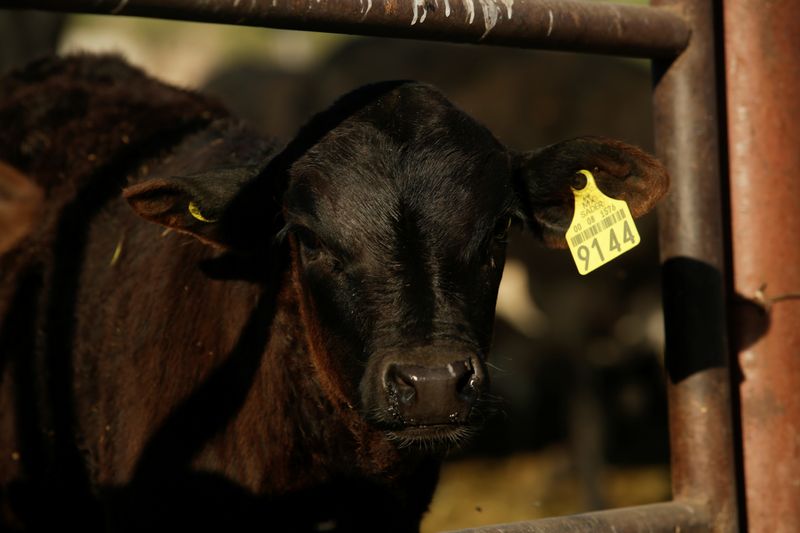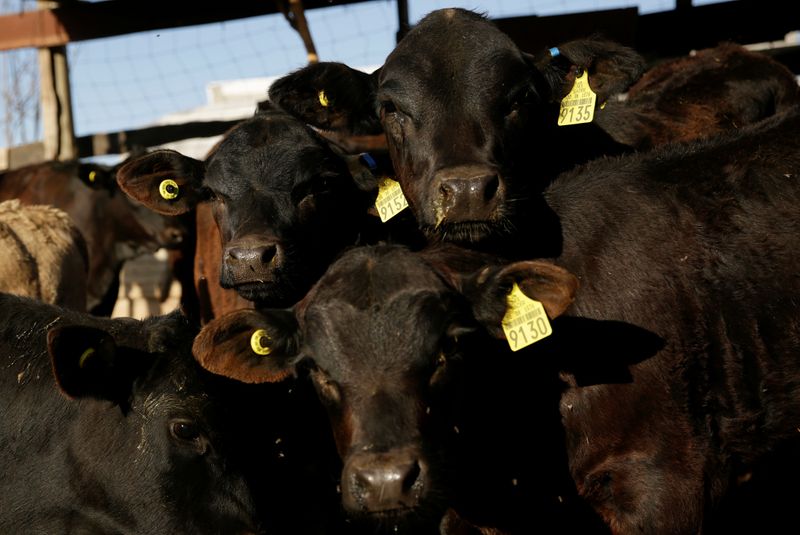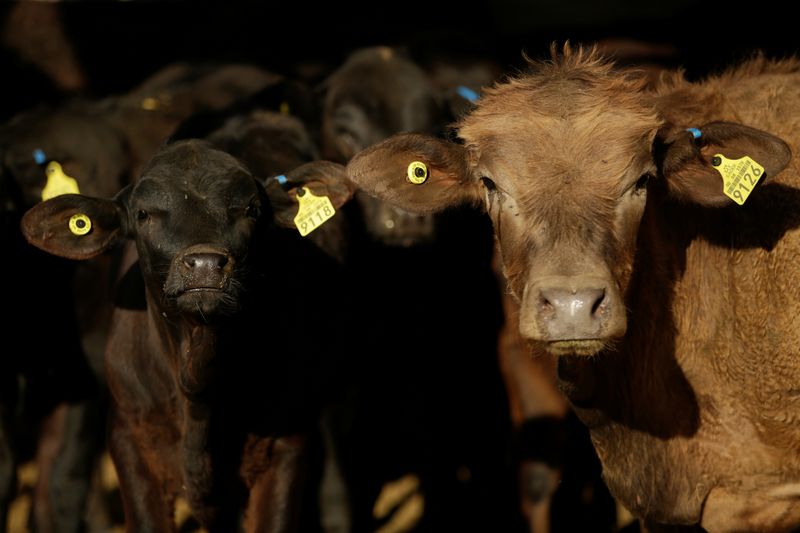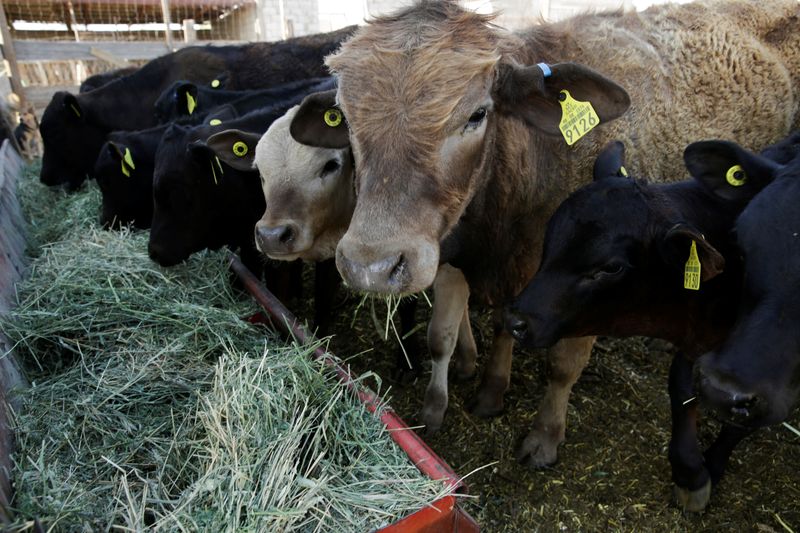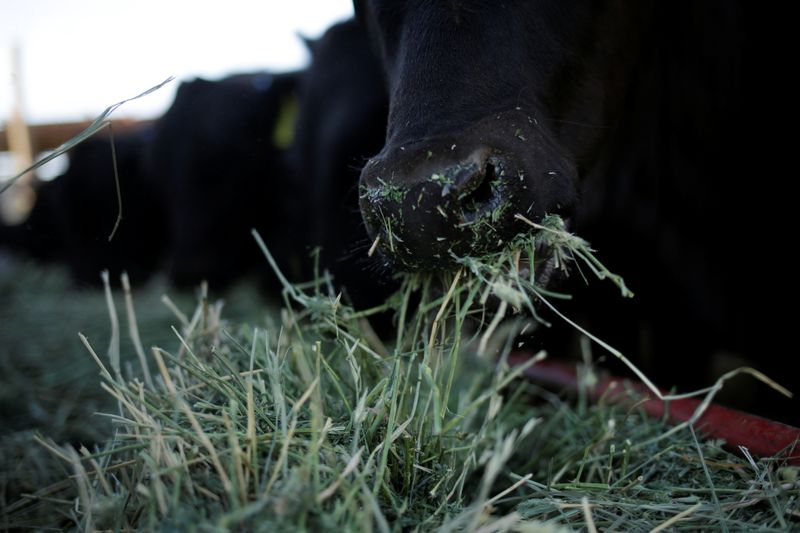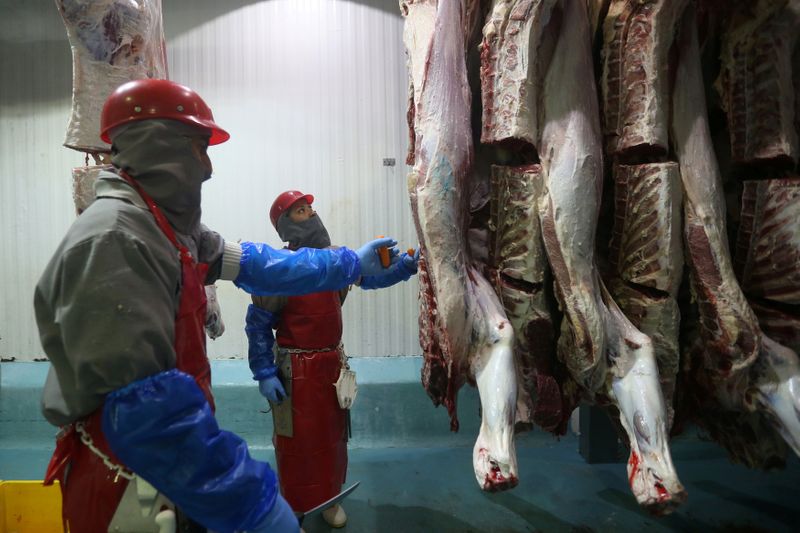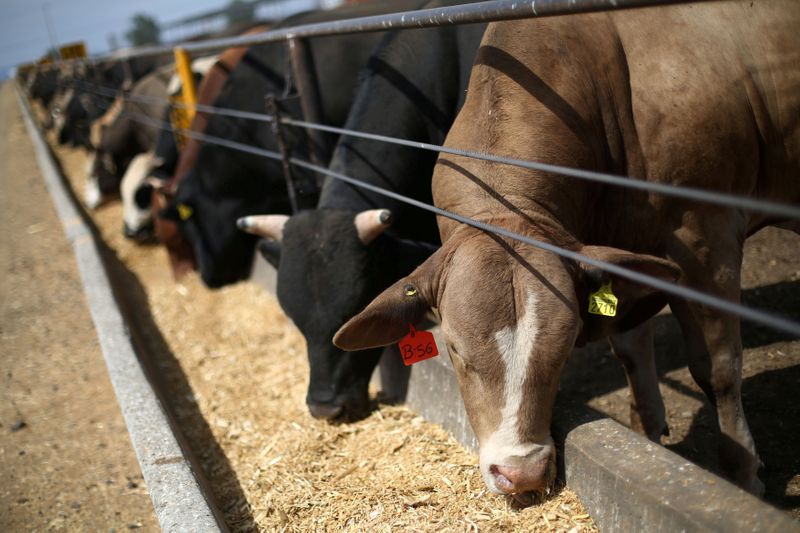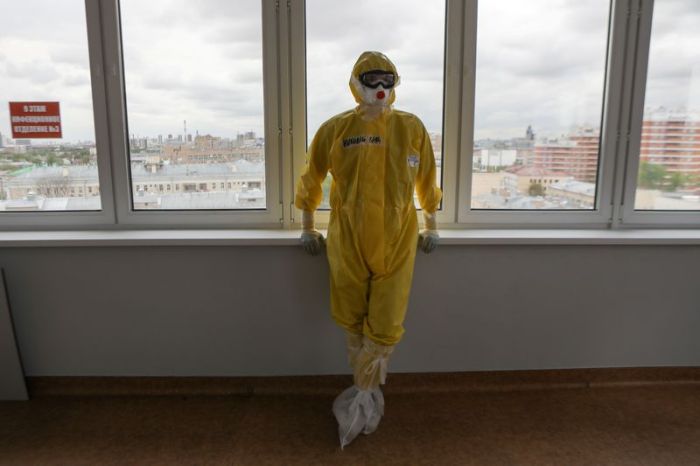MEXICO CITY/CHICAGO (Reuters) – More Mexican steaks and other beef cuts are headed north of the border after the coronavirus outbreak has hobbled U.S. meat processing plants, potentially offsetting fears of shortages affecting businesses from fast-food chains to grocery stores but angering American ranchers.
The Mexican industry chalks up the export growth to new safety measures adopted by plants, as well as relatively smaller-scale operations that have so far kept infections at bay and business humming.
In the United States, there has been a surge of cases of COVID-19, the respiratory disease caused by the novel coronavirus, at slaughterhouses and meat processing plants. That has crimped domestic supply, leading to unease among U.S. consumers and even warnings from leading fast-food burger chains like Wendy’s [WENWI.UL] that popular menu items may soon be discontinued.
In a recipe for popular discontent, those shortages could cause meat supplies to fall by nearly a third by the end of this month, while prices jump by around 20%.
Mexican beef supplies were already a growing part of U.S. sales prior to the crisis, and they are set for even stronger double-digit growth in 2020, said Juan Ley, president of Mexico’s main cattle growers association.
Leading an industry that spans 20 government-accredited beef-exporting companies including Mexican heavyweights like SuKarne, Ley predicts up to 12% growth in U.S. exports this year, compared with last year’s volume.
Sales to U.S. buyers have already jumped 10% this month, he said, and he expects the same in June.
From the beginning of this year through the first week of May, Mexican beef exports to its northern neighbor totaled nearly 87,000 tonnes, up roughly 8,000 tonnes compared with the same period last year, according to data from the U.S. Department of Agriculture.
In 2019, Mexico was the third-biggest foreign beef supplier to the United States, behind Australia and Canada, with exports reaching 232,000 tonnes. The United States accounted for about 86% of total Mexican beef exports, worth $1.3 billion.
“I think we’re going to leap past Canada this year,” added Ley.
Mexico boasts nearly 30 federally regulated processing plants of varying sizes, able to process anywhere from 600 to 1,800 cows in an eight-hour shift, according to industry data. Almost all of them operate only one shift per day, and vary in size from just 20 workers to several hundred.
In contrast, in the United States just four major beef-packing companies – Cargill Inc [CARG.UL], Tyson Foods Inc <TSN.N>, JBS [JBS.UL] and National Beef Packing [NBEEF.UL] – control more than 80% of the business.
While much of the beef imported into the United States is used to make hamburgers, most of the beef imported from Mexico is higher-end cuts that end up in grocery stores, said Derrell Peel, a livestock marketing specialist at Oklahoma State University.
LEANER INDUSTRY
The shift toward foreign supplies has angered many U.S. ranchers, who argue the consolidation of the meatpacking sector and shuttering of processing plants is limiting access to their own marketplace.
“There are about a half-million cattle here that cannot get to slaughter,” said Bill Bullard, chief executive officer of the Ranchers Cattlemen Action Legal Fund United Stockgrowers of America.
“I know guys who have had cattle to sell for five weeks, and they can’t even get a bid,” he said.
Ley, head of Mexico’s beef exporters association, is sensitive to the complaints. However, he noted Mexico also imports U.S. cuts in what he describes as a “very complementary” trade that he said was up 6% this year.
Mexican producers’ near-term gains are made possible by meatpacking plants that have not experienced the level of coronavirus outbreaks as their American counterparts.
To date, no more than 20 processing plant workers across the country have tested positive for the coronavirus, according to the cattle growers association, and no plants have been closed.
In the United States, Smithfield Foods, owned by China’s WH Group Ltd <0288.HK>, as well as JBS and Tyson Foods have since April temporarily shut more than a dozen U.S. plants after thousands of workers contracted the virus.
The Mexican government’s tally of confirmed coronavirus infections, currently at more than 38,000 cases, does not include industry-specific totals.
Jose Luis Ordoñez, a meatpacking plant manager just outside the city of Culiacan near Mexico’s Pacific Coast, points to a series of new measures his 350 workers have adopted since the crisis struck in March.
Buses used to transport workers to the plant are now sanitized four times daily, up from just once, and run double the daily routes they used to in an effort to boost social distancing among employees.
Workers now clock in at plants using spaced-out painted footprints, which are also in locker rooms and cafeterias. In cutting rooms, new plastic barriers have been erected.
The body temperatures of workers are also checked three times a day.
“All this has helped a lot be able to achieve the results we have until now,” said Ordoñez, whose plant sells packaged meats under the Santara brand.
Since March, three of his plant’s workers who had presented symptoms of COVID-19 were given tests.
“All negative,” he said.
(Reporting by David Alire Garcia in Mexico City and P.J. Huffstutter in Chicago; Additional reporting by Tom Polansek in Chicago; Editing by Frank Jack Daniel and Matthew Lewis)

